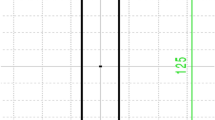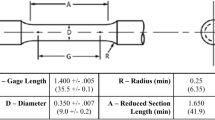Abstract
Mechanical properties are the attributes that measure the faculty of a metal to withstand several loads and tensions. Specifically, ultimate tensile strength is the force a material can resist until it breaks and, thus, it is one of the variables to control in the foundry process. The only way to examine this feature is the use of destructive inspections that renders the casting invalid with the subsequent cost increment. Nevertheless, the foundry process can be modelled as an expert knowledge cloud upon which we may apply several machine learnings techniques that allow foreseeing the probability for a certain value of a variable to happen. In this paper, we extend previous research on foundry production control by adapting and testing support vector machines and decision trees for the prediction in beforehand of the mechanical properties of castings. Finally, we compare the obtained results and show that decision trees are more suitable than the rest of the counterparts for the prediction of ultimate tensile strength.
Access this chapter
Tax calculation will be finalised at checkout
Purchases are for personal use only
Preview
Unable to display preview. Download preview PDF.
Similar content being viewed by others
References
Sertucha, J., Loizaga, A., Suárez, R.: Improvement opportunities for simulation tools. In: Proceedings of the 16th European Conference and Exhibition on Digital Simulation for Virtual Engineering (2006) (invited talk)
Penya, Y., García Bringas, P., Zabala, A.: Advanced fault prediction in high-precision foundry production. In: Proceedings of the 6th IEEE International Conference on Industrial Informatics, pp. 1673–1677 (2008)
Nieves, J., Santos, I., Penya, Y.K., Rojas, S., Salazar, M., Bringas, P.G.: Mechanical properties prediction in high-precision foundry production. In: Proceedings of the 7th IEEE International Conference on Industrial Informatics (INDIN’09), pp. 31–36 (2009)
Bishop, C.M.: Neural Networks for Pattern Recognition. Oxford University Press, Oxford (1995)
Fix, E., Hodges, J.L.: Discriminatory analysis: Nonparametric discrimination: Small sample performance. Technical Report Project 21-49-004, Report Number 11 (1952)
Elfayoumy, S., Yang, Y., Ahuja, S.: Anti-spam filtering using neural networks. In: Proceedings of the International Conference on Artificial Intelligence, ICAI, vol. 4, pp. 984–989
Simani, S., Fantuzzi, C.: Neural networks for fault diagnosis and identification of industrial processes. In: Proceedings of 10th Eurorean Symposium on Artificial Neural Networks (ESANN), pp. 489–494 (2002)
Li, H., Dai, X., Zhao, X.: A nearest neighbor approach for automated transporter prediction and categorization from protein sequences. Bioinformatics 24(9), 1129 (2008)
Santos, I., Penya, Y.K., Devesa, J., Bringas, P.G.: N-grams-based file signatures for malware detection. In: Proceedings of the 11th International Conference on Enterprise Information Systems (ICEIS), vol. AIDSS, pp. 317–320 (2009)
Santos, I., Nieves, J., Penya, Y.K., Bringas, P.G.: Machine-learning-based mechanical properties prediction in foundry production. In: Proceedings of ICROS-SICE International Joint Conference (ICCAS-SICE), pp. 4536–4541 (2009)
Santos, I., Nieves, J., Penya, Y.K., Bringas, P.G.: Optimising machine-learning-based fault prediction in foundry production. In: Omatu, S., Rocha, M.P., Bravo, J., Fernández, F., Corchado, E., Bustillo, A., Corchado, J.M. (eds.) IWANN 2009. LNCS, vol. 5518, pp. 553–560. Springer, Heidelberg (2009)
Vapnik, V.: The nature of statistical learning theory. Springer, Heidelberg (2000)
Quinlan, J.: Induction of decision trees. Machine learning 1(1), 81–106 (1986)
Maragoudakis, M., Loukis, E., Pantelides, P.P.: Random forests identification of gas turbine faults. In: ICSENG ’08: Proceedings of the 2008 19th International Conference on Systems Engineering, Washington, DC, USA, pp. 127–132. IEEE Computer Society, Los Alamitos (2008)
Yang, J., Zhanga, Y., Zhu, Y.: Intelligent fault diagnosis of rolling element bearing based on SVMs and fractal dimension. Mechanical Systems and Signal Processing 1, 2012–2024 (2007)
Thissena, U., van Brakela, R., de Weijerb, A.P., Melssena, W.J., Buydens, L.M.C.: Using support vector machines for time series prediction. Chemometrics and Intelligent Laboratory Systems 69, 35–49 (2003)
Gonzaga-Cinco, R., Fernández-Carrasquilla, J.: Mecanical properties dependency on chemical composition of spheroidal graphite cast iron. Revista de Metalurgia 42, 91–102 (2006)
Lung, C.W., March, H., N.: Mechanical Properties of Metals: Atomistic and Fractal Continuum Approaches. World Scientific Pub. Co. Inc. Singapore (July 1992)
For Testing, A.S., Materials: ASTM D1062 - Standard Test Method for Cleavage Strength of Metal-to-Metal Adhesive Bonds (2008)
Carrasquilla, J.F., Ríos, R.: A fracture mechanics study of nodular iron. Revista de Metalurgía 35(5), 279–291 (1999)
Hecht, M., Condet, F.: Shape of graphite and usual tensile properties of sg cast iron: Part 1. Fonderie, Fondeur d’aujourd’hui 212, 14–28 (2002)
Kohavi, R.: A study of cross-validation and bootstrap for accuracy estimation and model selection. In: International Joint Conference on Artificial Intelligence, vol. 14, pp. 1137–1145 (1995)
Singh, Y., Kaur, A., Malhotra, R.: Comparative analysis of regression and machine learning methods for predicting fault proneness models. International Journal of Computer Applications in Technology 35(2), 183–193 (2009)
Peng, T., Zuo, W., He, F.: SVM based adaptive learning method for text classification from positive and unlabeled documents. Knowledge and Information Systems 16(3), 281–301 (2008)
Author information
Authors and Affiliations
Editor information
Editors and Affiliations
Rights and permissions
Copyright information
© 2010 Springer-Verlag Berlin Heidelberg
About this paper
Cite this paper
Nieves, J., Santos, I., Penya, Y.K., Brezo, F., Bringas, P.G. (2010). Enhanced Foundry Production Control. In: Bringas, P.G., Hameurlain, A., Quirchmayr, G. (eds) Database and Expert Systems Applications. DEXA 2010. Lecture Notes in Computer Science, vol 6261. Springer, Berlin, Heidelberg. https://doi.org/10.1007/978-3-642-15364-8_15
Download citation
DOI: https://doi.org/10.1007/978-3-642-15364-8_15
Publisher Name: Springer, Berlin, Heidelberg
Print ISBN: 978-3-642-15363-1
Online ISBN: 978-3-642-15364-8
eBook Packages: Computer ScienceComputer Science (R0)




